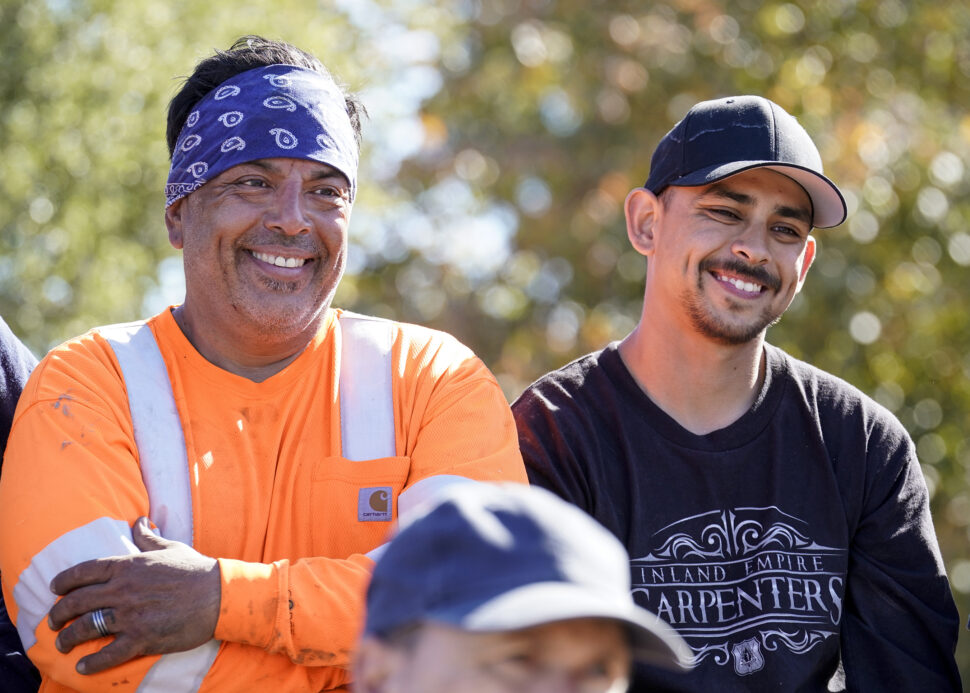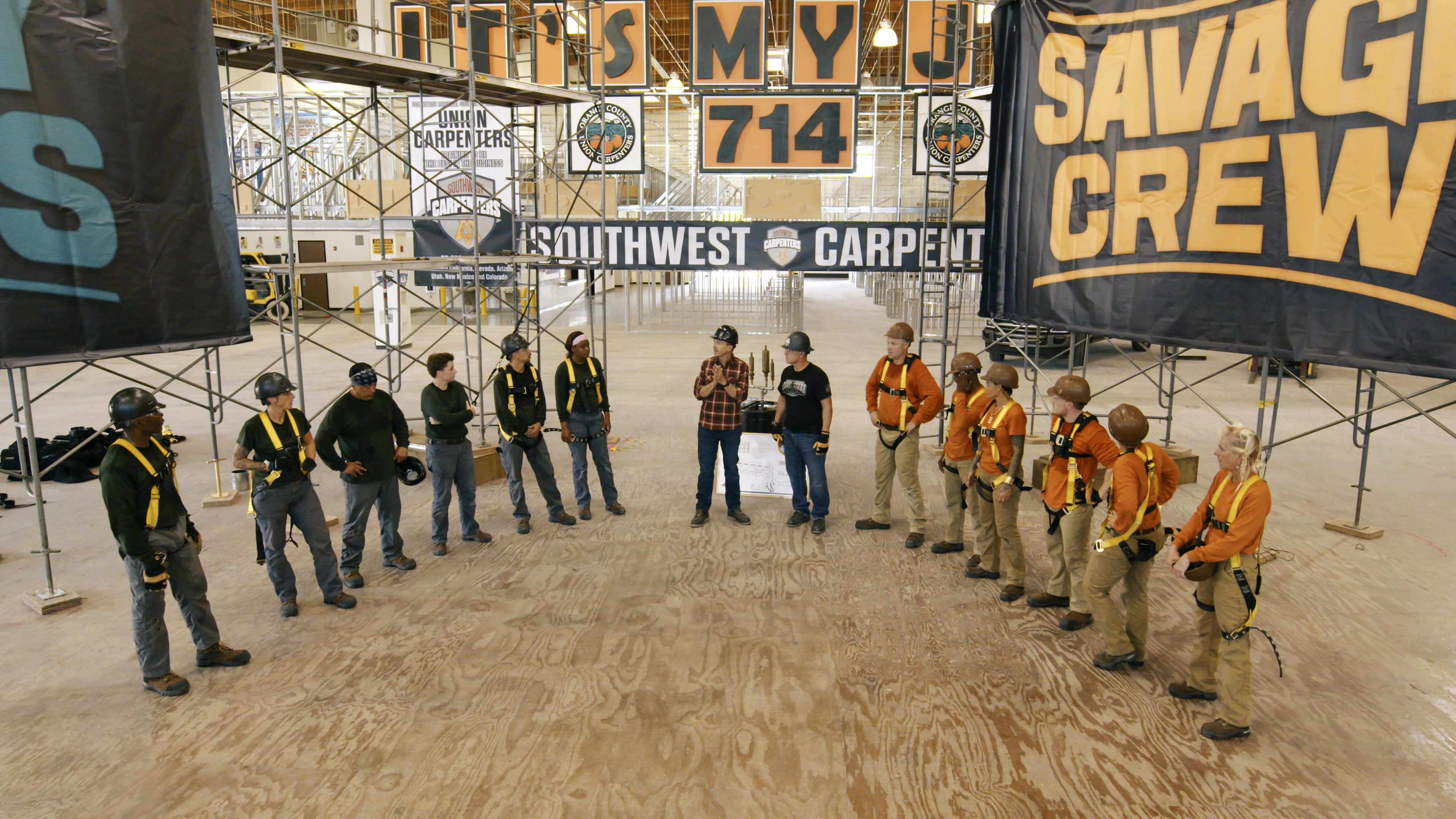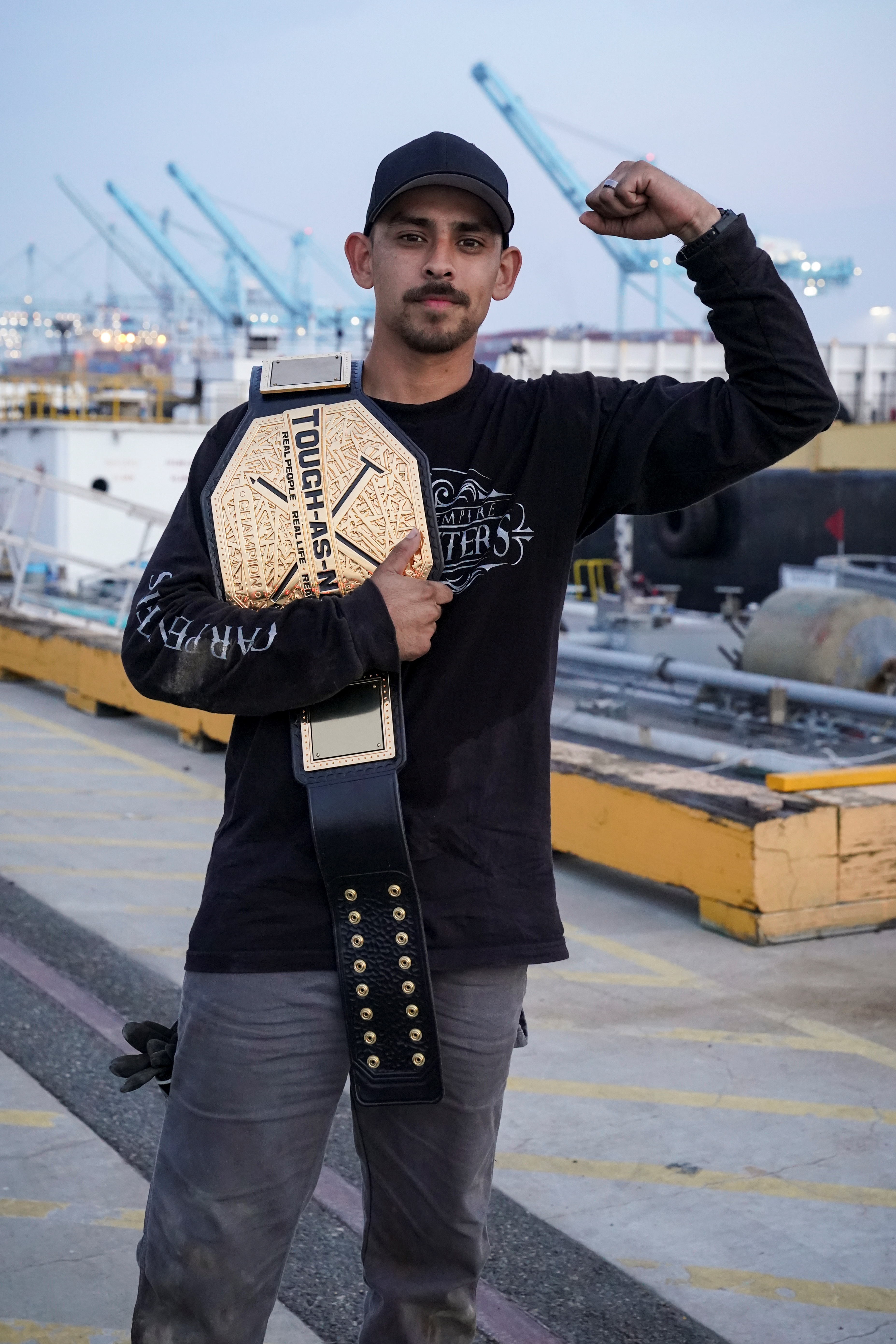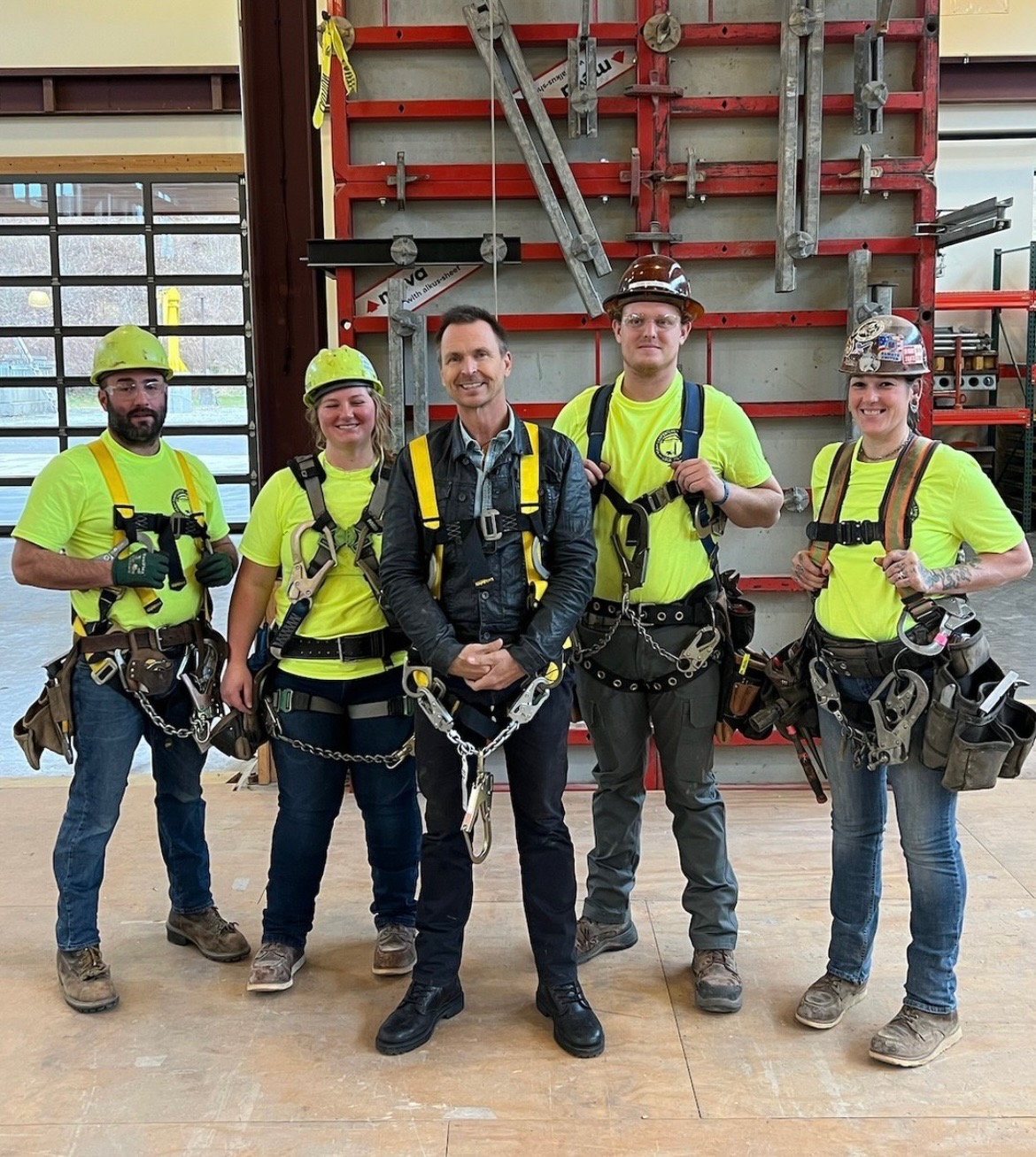
If you are a union carpenter and a fan of the Tough As Nails television series, you already know about the UBC members who were cast to be part of the show’s latest season (Season Four).
Local 714 member Sergio Robles and Local 909 member Jorge Zavala, both of Southern California, started their journeys to Tough As Nails in exactly the same way. Early one morning, when the Southwest Mountain States Regional Council of Carpenters (SWMSRCC) posted an Instagram notice about applying to be on the show, they both took just a moment to think about it before quickly filling out the application and pressing Send.
“I had seen a couple episodes and I thought I could do well on the show,” Zavala said.
Robles said, “I filled it out and forgot about it, but three days later they invited me to interview.”
That was in late August 2021.
After a rigorous process to show they could keep pace with the show’s challenges, Zavala and Robles made the cut and became part of the 12-member cast of men and women that also included a pipeline laborer, a diesel technician, a firefighter and other blue-collar workers. A third UBC member, apprentice Synethia Bland, also joined the cast. The UBC members weren’t the first to compete on Tough As Nails. Local 714 member and Career Connections instructor Lamar Hanger set a fine example when he competed during Season Three.
The Tough As Nails format is a departure from what we often see on reality TV shows. Sure, the competition is fierce and, one by one, cast members are eliminated from individual competition. But elimination is based on who finishes a challenge first, correctly, not on back-stabbing contestants voting each other off.
And the Savage Crew and Dirty Hands teams that form up during the first episode stay together to battle through team challenges for the entire 10-episode season. No one goes home. In this way they look a little like real-life jobsite crews, working together to get the job done.
Some of the challenges look like typical blue-collar tasks. Pouring a concrete pad, erecting a scaffold, reassembling an engine, hauling countless wheelbarrows of dirt and rotating tires were just a few of the tasks that made up Season Four.
Then again, contestants were also challenged to replace boat mooring systems, pull and fold 200 fathoms of net onto a boat, make boxes and pack 40 lbs. of squid and ice into each one; and smash 300-pound blocks of ice, then pack the pieces into containers.
Robles won the mooring challenge in the first episode, which made him a team captain and enabled him to choose the Dirty Hands crew. It was a fitting privilege for a 26-year UBC member who serves as a general foreman on Kiewet jobsites.
“That first challenge involved a lot of cardio and everyone was faster than me,” Robles said. “But I paced myself and finished first. I knew I could be a good captain and coach my team the way I coach my crews at work.”
Robles is a survivor of kidney cancer and his older brother had recently died as filming began. “I had some anxiety about my health and was going through some bad days over my brother, but I told myself he would have wanted me to compete. I did it to honor my brother,” Robles said.
Not surprisingly, Robles’ first pick for the Dirty Hands crew was Zavala.
“I thought, he’s had the same training I had; we’ll be able to build stuff on this show,” Robles said.
Robles and Zavala both said they brought an inner confidence to the competition based on their UBC training, work ethic and passion.
“A lot of the challenges were in my wheelhouse because of my training,” Zavala said. “I’ve always relied on my mentors and other carpenters. You become the carpenter that your mentors are—it all gets passed on.”
When Zavala won individual challenges, he said it was often because, “the thing about carpenters going into new situations is, you have a ‘let’s do it’ mentality. We go through that every day. I’ve also learned how to strategize and set myself up for success. If you’re able to mentally figure out how to do something and make every move count, you get a lot more done.”
The high point for the UBC members on the show—and for members watching the show at home—was Episode 7, which took place at the Southwest Carpenters Training Fund’s Buena Park Training Center in Orange County.
“Oh man,” Zavala said. “I don’t think the TV really showed how super-excited Sergio and I were as we drove there. We kind of knew as we were getting closer, and I was so happy we were able to represent for the union and show what the training center offers.”
For Robles, “When we were getting close to the freeway exit, we were like two kids in a candy store.”
Waiting for them at the training center was Hanger, who served as judge for that day’s challenges. The teams were required to erect two-story scaffolds, while the individual challenge involved installing 72 acoustical ceiling tiles, with holes for vents and sprinklers, and cleaning up the jobsite. Though he had never installed ceiling tiles, Zavala won the challenge.
For Episode 10, the final three contestants in the individual competition had to run a 15-step gauntlet, performing rapid-fire tasks in what host and producer Phil Keoghan said was the show’s closest finish yet. The winner would claim $200,000 in cash, plus a Ford F-250 Super Duty truck.
Jorge Zavala took it all home and became Season Four’s individual champion. He said he had never doubted that he could do it.
“My biggest competition was with myself,” he said. “I had my training; I just had to compete.”
By the time Season Four aired in January this year, Robles had recruited Zavala to work with him on a Kiewet water treatment plant project in Fountain Valley.
“Jorge is a hustler and an asset to any crew,” Robles said.
A father of three, Zavala said the competition “changed the way I look at life. I gained even more confidence, and I came home a better man. That’s all you can ask for.”




